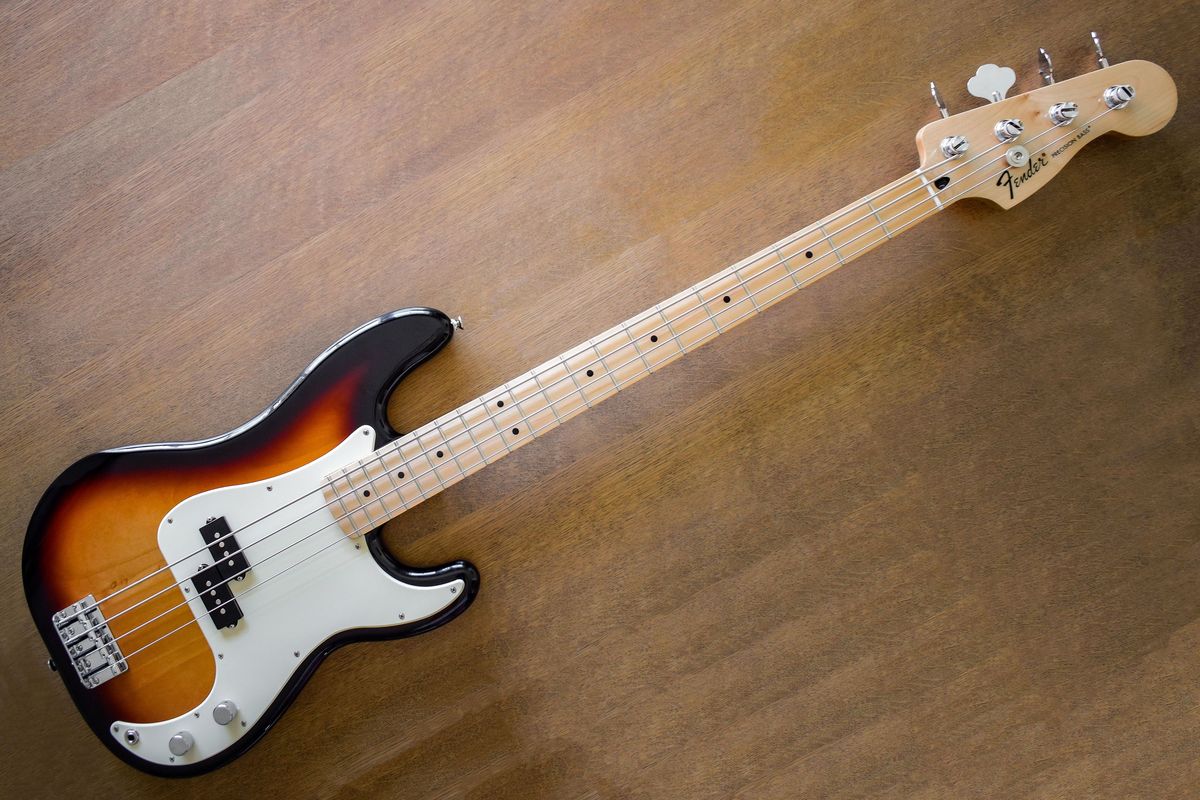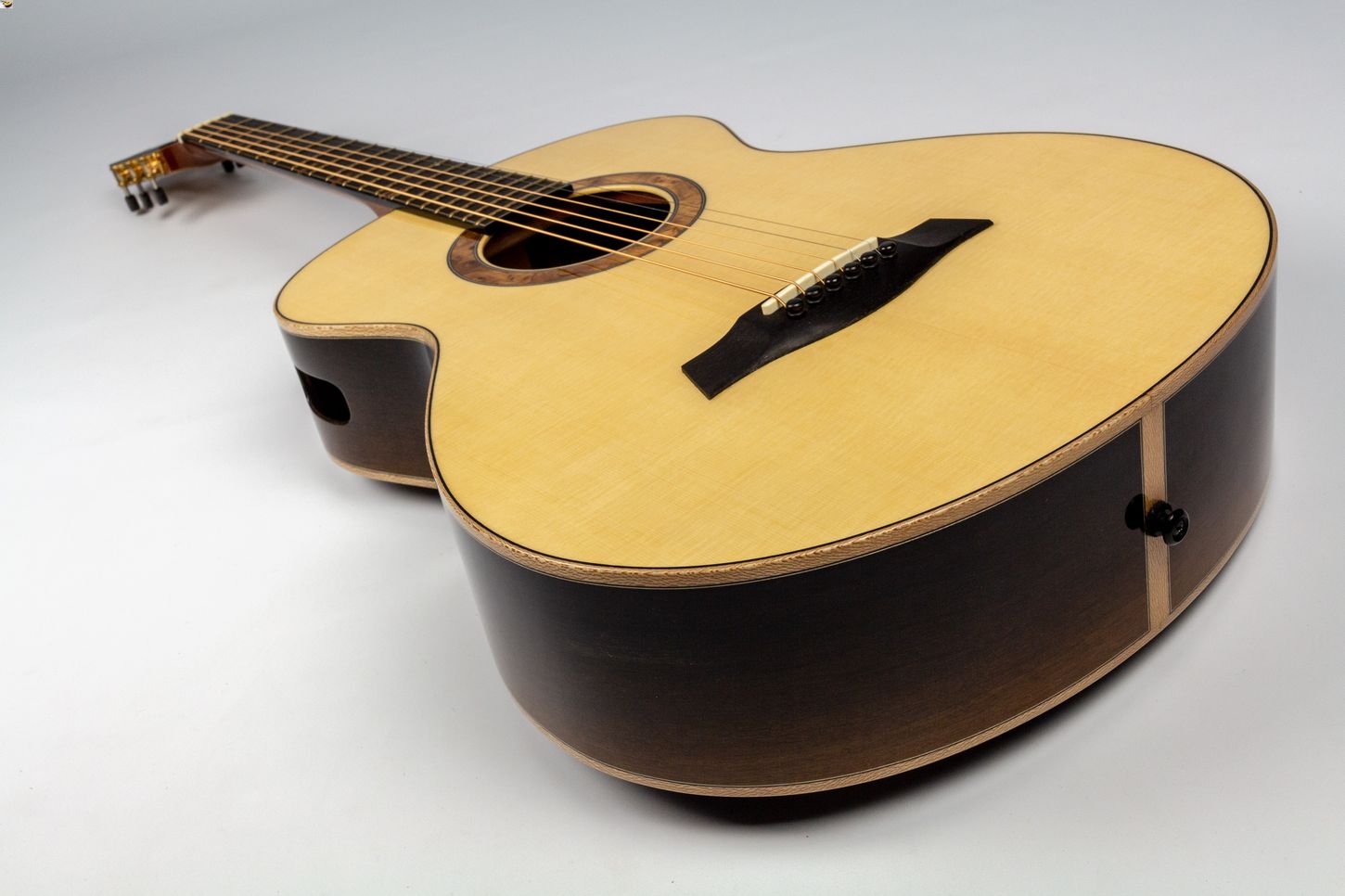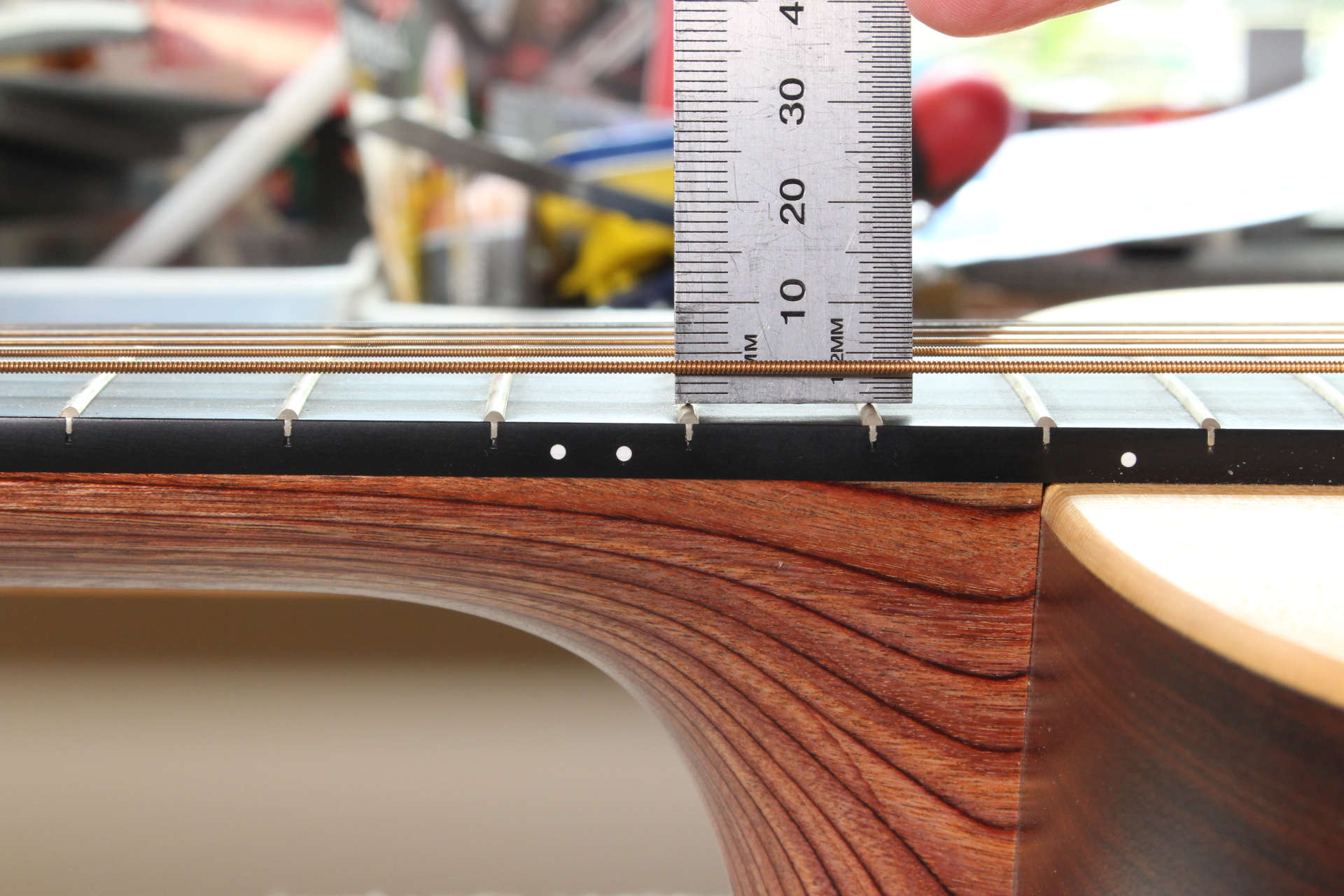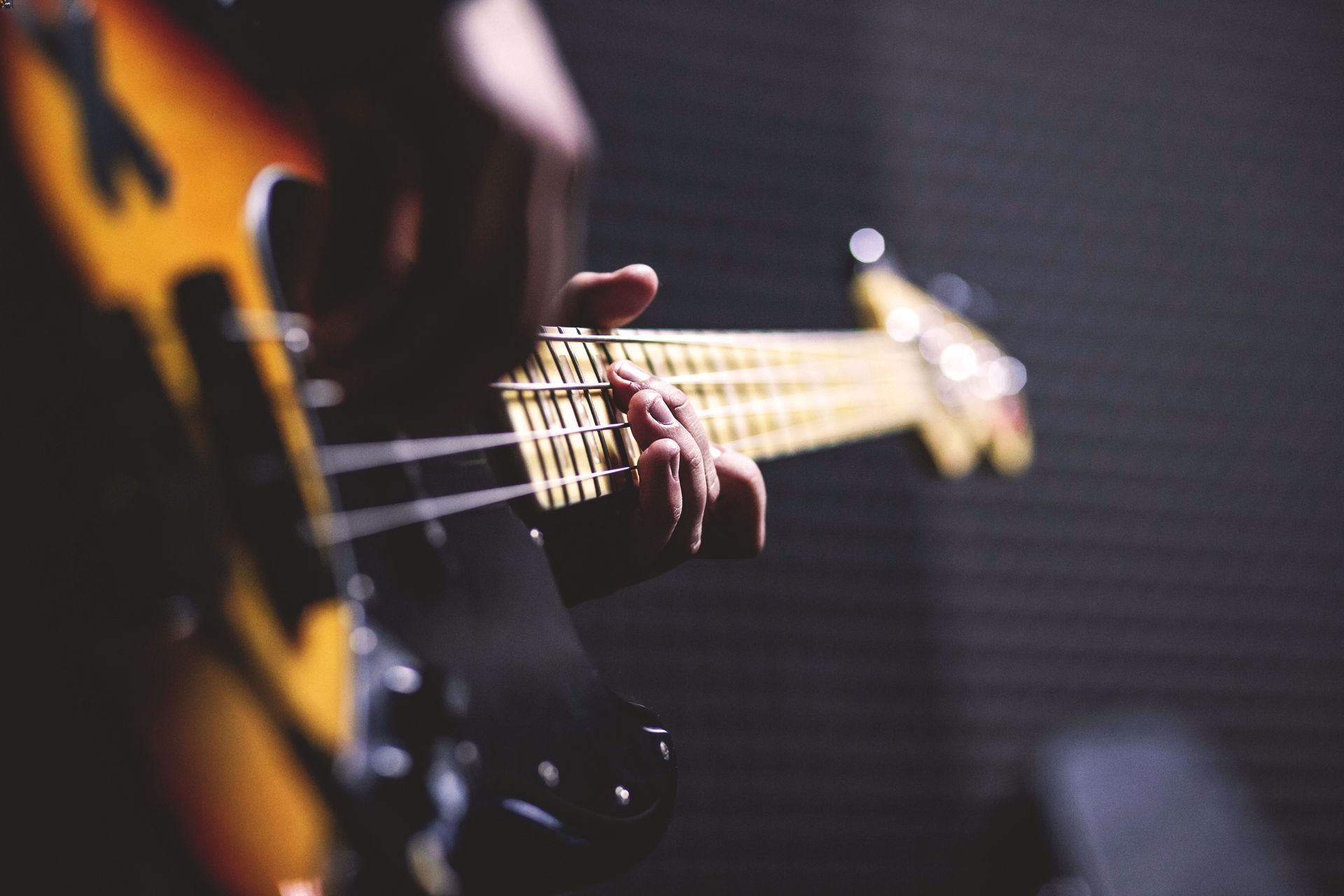Home>Instruments>Guitar>How Long Should You Practice Guitar Each Day


Guitar
How Long Should You Practice Guitar Each Day
Published: February 12, 2024
Find out the ideal daily practice time for guitar players. Learn how to improve your skills and make the most of your practice sessions. Discover effective guitar practice strategies.
(Many of the links in this article redirect to a specific reviewed product. Your purchase of these products through affiliate links helps to generate commission for AudioLover.com, at no extra cost. Learn more)
Table of Contents
Introduction
Learning to play the guitar is an incredibly rewarding journey that offers a unique blend of artistic expression, mental stimulation, and emotional fulfillment. Whether you’re a beginner picking up the instrument for the first time or an experienced player looking to refine your skills, the question of how long to practice each day is a common concern. While there’s no one-size-fits-all answer, understanding the benefits of regular practice and the factors to consider can help you determine the optimal practice time for your individual needs and goals.
Embarking on this musical adventure can be both exciting and challenging. The guitar, with its versatility and widespread popularity, has the power to captivate and inspire. As you begin or continue your guitar journey, it’s essential to strike a balance between dedication and enjoyment. Finding the right amount of practice time each day is crucial for progress and skill development, but it’s equally important to avoid burnout and maintain a sense of joy and creativity in your playing.
Benefits of Regular Practice
Regular practice is the cornerstone of mastering any skill, and learning the guitar is no exception. Consistent and focused practice yields a myriad of benefits that contribute to your overall growth as a guitarist.
- Skill Development: Devoting time to practice each day allows you to hone your technical skills, such as finger dexterity, chord transitions, and picking accuracy. Over time, this leads to smoother and more confident playing.
- Muscle Memory: Repetition is key to building muscle memory, which is essential for playing complex chord progressions, scales, and intricate melodies with ease.
- Ear Training: Regular practice sharpens your ear and enhances your ability to recognize notes, chords, and melodies, ultimately improving your musical perception and improvisational skills.
- Confidence Building: As you see gradual improvement from consistent practice, your confidence grows, allowing you to tackle more challenging pieces and perform with greater assurance.
- Stress Relief: Engaging in daily practice sessions provides a therapeutic outlet, offering a break from the demands of daily life and promoting relaxation and mindfulness.
Moreover, regular practice nurtures discipline, patience, and perseverance – qualities that extend beyond the realm of music and positively impact various aspects of your life. By immersing yourself in consistent practice, you not only advance your musical abilities but also cultivate valuable life skills that can serve you well in any pursuit.
Factors to Consider
When determining the ideal amount of time to dedicate to guitar practice each day, it’s essential to consider several factors that can influence your practice routine.
- Experience Level: Beginners may find that shorter, more frequent practice sessions are beneficial for building foundational skills and preventing physical fatigue. Intermediate and advanced players, on the other hand, often benefit from longer, focused practice sessions to refine technique and tackle more complex material.
- Goals and Objectives: Your musical aspirations play a crucial role in shaping your practice schedule. Whether you aim to perform professionally, jam with friends, or simply enjoy playing for personal fulfillment, aligning your practice time with your goals is essential.
- Time Constraints: Balancing practice with work, school, or other commitments is a common challenge. It’s important to set realistic practice goals that fit into your daily schedule without causing undue stress.
- Physical and Mental Endurance: Pay attention to your physical and mental stamina during practice. Pushing yourself too hard can lead to burnout and frustration, while too little practice may hinder progress. Finding a sustainable balance is key.
- Learning Style: Everyone learns differently, and understanding your preferred learning style can help tailor your practice routine. Whether you thrive on structured exercises, song learning, or a combination of both, adapting your practice time to suit your learning style is advantageous.
By taking these factors into account, you can personalize your practice routine to suit your individual needs, maximizing the effectiveness and enjoyment of your practice sessions.
Recommended Practice Time
While the optimal practice time for guitarists varies based on individual circumstances, a general guideline can provide a helpful starting point. For beginners, aiming for 15-30 minutes of focused practice per day is a realistic and attainable goal. This duration allows for consistent skill development without overwhelming new players.
Intermediate players may benefit from extending their practice sessions to 30-60 minutes, allowing for deeper exploration of techniques, repertoire expansion, and targeted skill refinement. As proficiency grows, gradually increasing the practice time can support continued progress and musical fluency.
Advanced players, including professional musicians and dedicated enthusiasts, often devote 60 minutes or more to daily practice. With a higher level of technical and musical complexity to navigate, longer practice sessions provide the necessary space for mastering challenging material, refining performance nuances, and nurturing a deep connection with the instrument.
It’s important to approach practice with intention and focus, regardless of the duration. Short, purposeful practice sessions can be incredibly productive, while longer sessions require sustained mental engagement and physical stamina. Additionally, incorporating breaks and varied practice activities within longer sessions can prevent fatigue and maintain enthusiasm.
Ultimately, the recommended practice time serves as a flexible framework, and individual preferences, energy levels, and daily schedules should inform your approach. Listening to your body and mind, staying attuned to your musical goals, and adapting your practice routine as needed are key elements in finding the right balance of quantity and quality in your daily guitar practice.
Conclusion
Embarking on a daily guitar practice regimen is a commitment that holds the potential to transform your musical journey. By understanding the benefits of regular practice, considering individual factors, and embracing a recommended practice time, you can cultivate a fulfilling and sustainable practice routine that aligns with your goals and aspirations.
Remember that progress in music, much like in life, is a journey rather than a race. Embrace the process, celebrate small victories, and remain patient and persistent in your pursuit of musical excellence. Whether you’re strumming for relaxation, aiming for the stage, or seeking to expand your creative horizons, the time you invest in practice serves as a catalyst for growth and self-expression.
As you navigate your practice journey, prioritize quality over quantity, infuse your sessions with passion and purpose, and maintain a spirit of curiosity and exploration. Embrace the joy of discovery and the satisfaction of improvement, and let your daily practice sessions become a source of inspiration and fulfillment.
Ultimately, the ideal practice time is a deeply personal choice, and there’s no one-size-fits-all formula. Listen to your instincts, honor your commitments, and let your love for music guide your daily practice routine. The guitar, with its timeless allure and endless potential, awaits your touch and dedication. Embrace the journey, savor the moments of musical revelation, and let your daily practice sessions become a cherished ritual in your musical odyssey.











